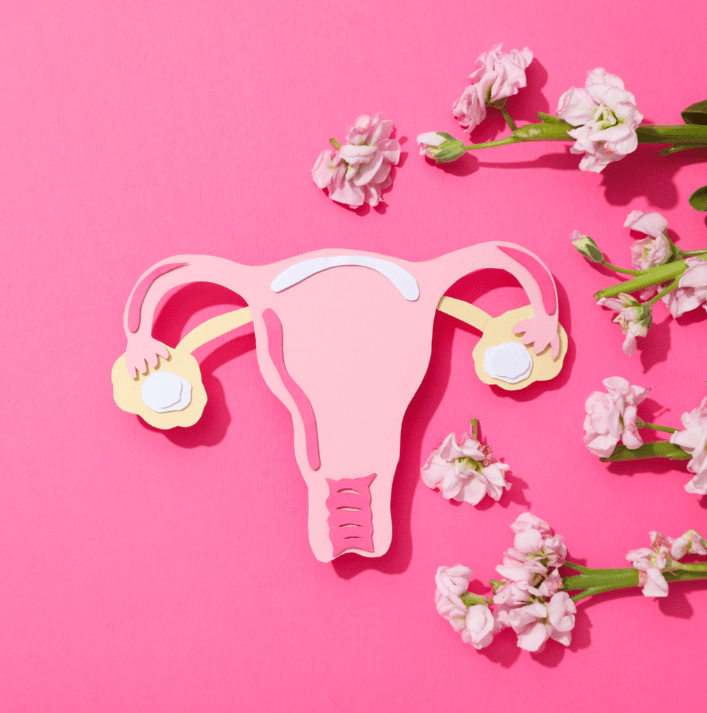Hey there, in this blog we want to talk about something that can be a little disturbing —finding how bleeding after sex causes the pain that often goes along with it. It’s not the most comfortable topic, but it’s important to understand what might be going on and what you can do if it’s happening to you.
Sometimes things can get a little messy after intimacy with your partner. You might bleed after sex. It’s not uncommon. It can be alarming, but there’s usually a reason behind it.
Top Reasons Why Bleeding After Sex Causes Pain
Sensitive Cervix: Your cervix is a small passage connecting your uterus and vagina and it’s sensitive down there. Sometimes, during the heat of the moment, it might get irritated and bleed a bit. It might be simple irritation or there could be a good reason. Cervical polyps, growths on the cervix’s surface or cervical inflammation can lead to bleeding.
Dry Spell in the Vagina: It might be vaginal dryness. If things down there aren’t well-lubricated during sex, the friction can lead to tiny tears in the vaginal walls. These tears can cause bleeding. The dryness might be due to hormonal changes, stress or even certain medications. It might just be that you aren’t fully aroused before intercourse. If this is the case, try longer foreplay. Or your body may need some extra help so try a lube. There are commercial products or we like the natural solutions like coconut oil or even olive oil.
Hormones: Are you perimenopausal or menopausal? In menopause, the hormone estrogen decreases. Estrogen is a key hormone in vaginal lubrication so vaginal dryness is a common side effect. Try using lubrication or moisturizers during sex to avoid the discomfort, bleeding and even skin tearing that can happen from sex during this time of life.
Infection Intruders: Bleeding after sex causes pain sometimes by Infection. STIs like chlamydia, gonorrhea, or herpes can cause trouble in the form of irritation and bleeding. Then there are non-STI infections that could be the problem. Yeast infections or bacterial vaginosis can lead to post-coital, or post sex, bleeding.
Endometriosis Drama: Endometriosis is when uterine tissue grows outside the uterus, causing pain, bleeding and discomfort during sex.
Uterine Issues: Fibroids and uterine polyps may be the culprit. Fibroids (non-cancerous growths in the uterus) or uterine polyps can lead to bleeding after intercourse. These growths can be sensitive and easily irritated.
Rough and Tumble: Sometimes things can get a little wild in the heat of passion. Too much enthusiasm or unintentional roughness can cause trauma to the vaginal or cervical tissues, resulting in bleeding and pain. So, a little moderation will help. Also try using lubrication to combat this.
Something More Serious: Also bleeding after sex causes pain can be a symptom of cervical or vaginal cancer. One study in 2022 found that up to 3.8% of women with post-coital bleeding have cervical cancer (Owens GL, 2022). The chances are small but it’s still worth checking out if your bleeding becomes a regular issue.
You Might Have a Higher Risk of Bleeding After Sex if You:
- Have cervical or uterine cancer
- Are in perimenopause, menopause or are postmenopausal
- Recently had a baby or are breastfeeding
- Are not fully aroused and turned on before intercourse
- Douche frequently
Apart from bleeding, you might have pain or discomfort during or after sex. The intensity of pain can vary from mild discomfort to sharp, severe pain. The pain might be in your pelvic region, lower abdomen or even in the lower back. You might feel the pain during sex or it might only come on after sex.
When Should You Consider Raising The Alarm and Seek Medical Advice:
Frequent Bleeding: If this bleeding thing is becoming a regular occurrence, it’s time to have a chat with a healthcare professional so you can address the underlying cause.
Pain: If the pain is turning your good time into a not-so-good time and it’s getting severe, don’t ignore it. You don’t have to endure pain to enjoy intimacy.
Change in Symptoms: If the symptoms change – like the bleeding or pain becomes more intense or different from the usual pain – it’s probably a good idea to reach out to your doctor.
Discharge or Odor: If you notice unusual vaginal discharge, a funky odor or itching, it might mean there’s an infection. This is the time to consult a professional.
Pre-existing conditions: If you have a condition like endometriosis, fibroids or cervical or other reproductive issues, talk to your doctor about any new developments in bleeding and pain.
Bleeding After Sex Along With Pain Can Be Disturbing – Here Are Steps You Can Take:
- First, don’t panic – it might be due to minor causes like sensitivity or lack of lubrication. If it persists or is severe, see your doctor.
- Stay hydrated, maintain good hygiene and avoid harsh soaps.
- Keep communication open with your partner. Try gentle, well-lubricated intercourse.
- If you suspect an infection or have a history of reproductive issues, see your doctor. Don’t hesitate to discuss your symptoms openly with your partner and your doctor.
Lab Testing
If you do decide to see your doctor, they may run some lab testing. This will get to the root cause. Your doctor may recommend tests to look for infections, hormonal imbalances or cervical issues.
Test could include:
- STI screenings
- Vaginal swabs
- Blood tests
- Hormone level assessments
- A pelvic exam to identify abnormalities like polyps
- An ultrasound to identify fibroids or endometriosis
The test results will guide your doctor as to what is the problem and how it should be treated.
Your body is always talking to you. If bleeding after sex becomes more than just an occasional surprise or if the pain is becoming a problem, then reach out to a healthcare expert. They can help you get to the root of the problem. You deserve to have an enjoyable and pain-free experience, both in and out of the bedroom!
Click for more information on pain with sex.





